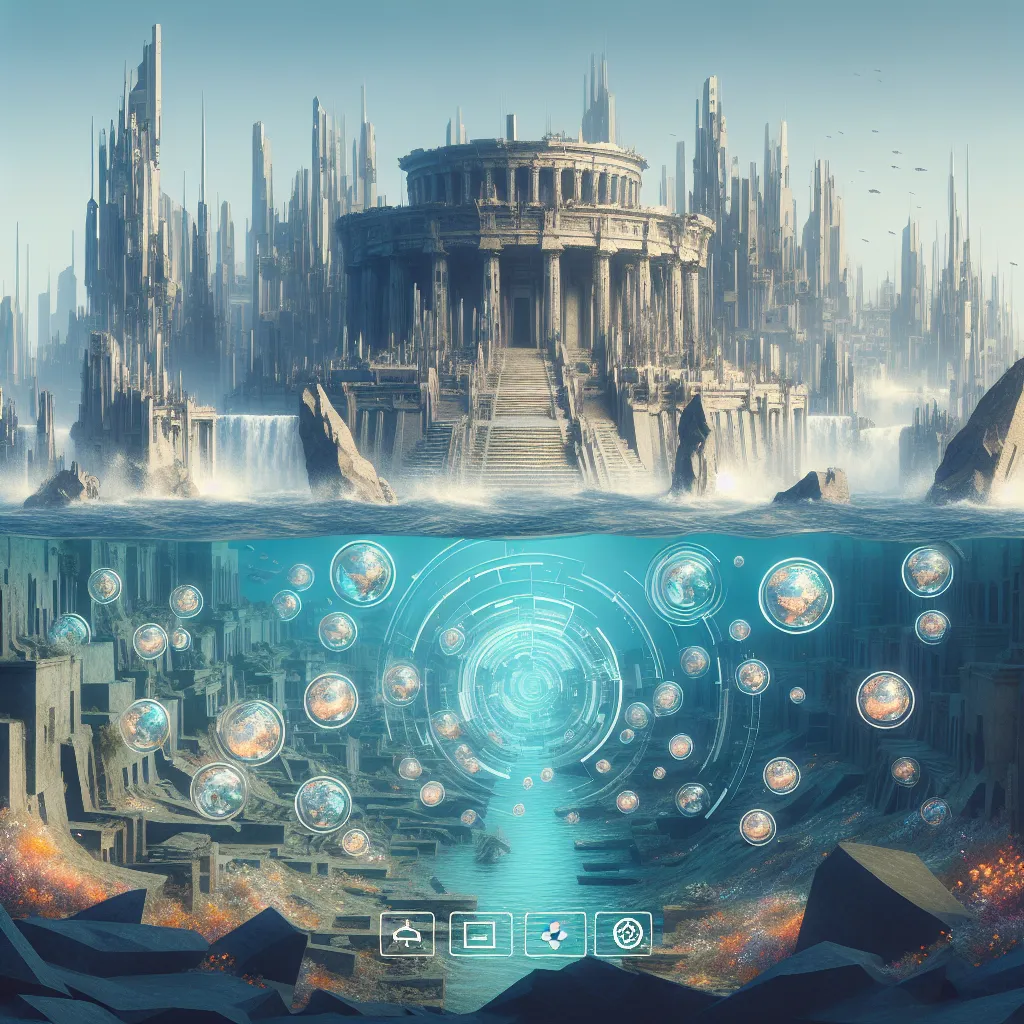A disaster is on the horizon, threatening a city that’s rich in culture and technological marvels. This isn’t just any city; it’s Atlantis, the legendary land said to have vanished beneath the waves 11,000 years ago due to a massive cataclysm. For centuries, the story has captivated scientists and scholars alike.
Atlantis, the world’s most enduring mystery, was first chronicled by the Greek philosopher Plato over 2,000 years ago. But was this city real or simply a myth? Why are so many people fascinated by it? Is it because Atlantis represents an ideal society, a lost utopia?
To search for Atlantis, we must understand Plato’s account. He described the city as a paradise destroyed overnight by a catastrophic event. Yet, can an entire civilization be completely annihilated so swiftly? It’s hard to imagine, given recent natural disasters that cause significant but not total destruction. However, when we dig deeper into history, we find that Earth’s violent past is filled with natural disasters, from devastating tsunamis to explosive volcanoes that can wipe out entire cities.
The quest to uncover Atlantis takes a global turn, investigating several intriguing sites. First, there’s the Mediterranean island of Thera (now called Santorini), which was shattered by a volcanic eruption 3,600 years ago. Walking amidst the ruins, one can see a highly advanced civilization with architecture and artworks that were ahead of their time. This civilization mysteriously vanished, not unlike Plato’s tale.
In the Caribbean, underwater formations recently discovered off Cuba’s coast offer another exciting possibility. These formations suggest massive underwater structures, fueling speculation that they could belong to an ancient city.
Dr. Robert Schoch, a geologist, and Ken Feder, an archaeologist, join the quest to separate myth from reality. They delve into Plato’s writings, searching for any evidence to validate the story. They note how other catastrophic tales across mythologies might have a basis in reality, just like Atlantis might.
One Prominent search took us to Malta, where incredibly ancient temple structures suggest the possibility of a forgotten advanced society. These temples, some constructed 1,000 years before Egypt’s pyramids, hint at an unspecified past that might host part of Plato’s tales. Malta experienced its disasters, including evidence of a massive flood that could have matched Atlantis’ watery demise.
Another chapter in the hunt lands us in the Bahamas, specifically around the Bimini Road. This mysterious underwater site has spawned numerous theories about its man-made or natural origin.
Lastly, Paul’s work in Cuban waters revealed deep-sea formations that challenge our understanding of ancient architecture. These structures, 2,000 feet underwater, if proven artificial, could signify a civilization lost to time, possibly Atlantis.
The various sites all share some resemblances to Plato’s Atlantis but also significant disparities. The Minoan civilization on Santorini aligns closely with many details: advanced society, circular city layout, and destruction by a volcanic eruption. However, the timing doesn’t match Plato’s account.
The Bahamas and Cuba show underwater mysteries that provoke intrigue but lack decisive evidence. As fascinating as these theories are, no location perfectly fits all of Plato’s descriptions.
In conclusion, the search for Atlantis yields compelling historical secrets and advances our understanding of ancient civilizations. Despite our best efforts, Atlantis remains a tantalizing mystery, perhaps no more than a myth for now. But the world’s oceans still hold many secrets, and maybe, just maybe, one day Atlantis will rise from legend to reality.






